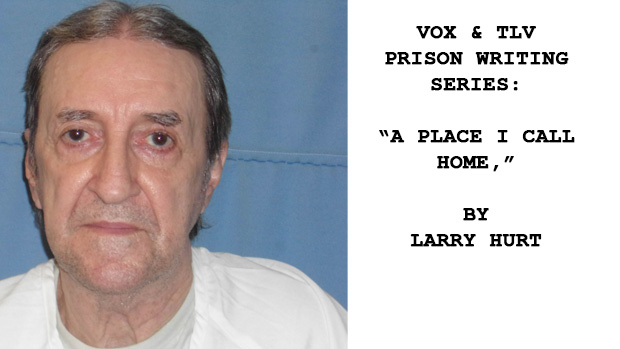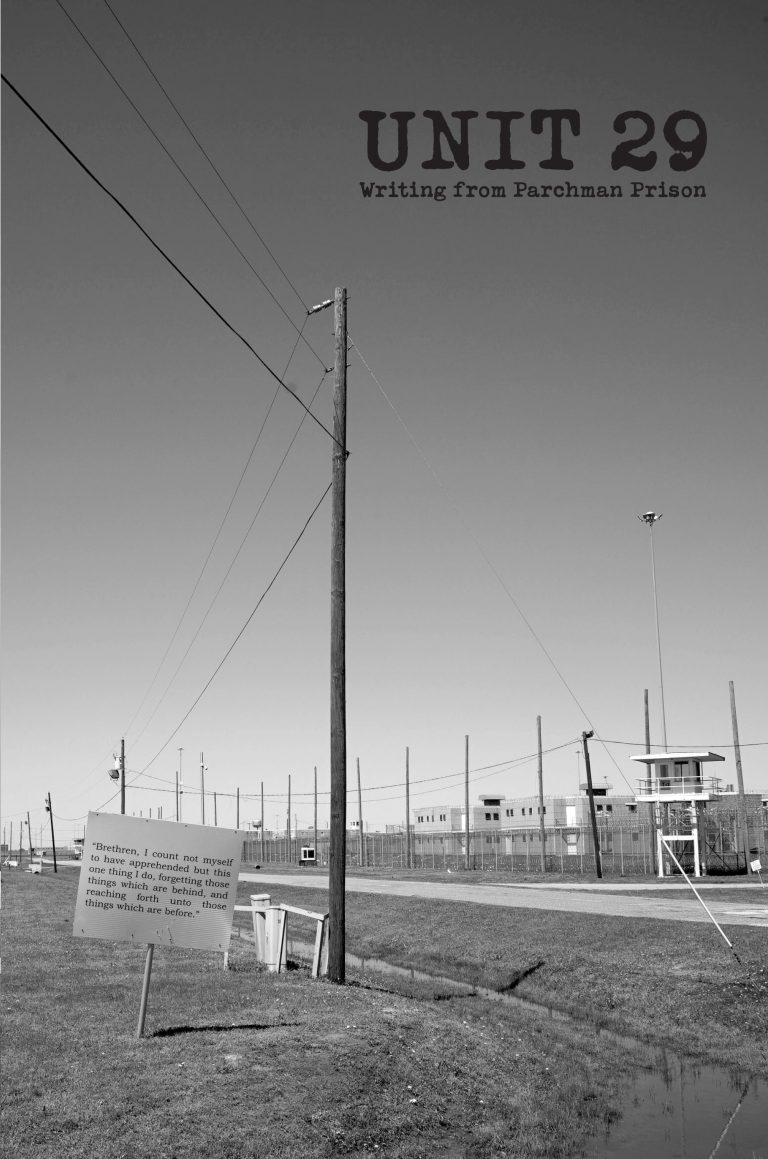
What I call home is always temporary. Right now, it’s at Clinic #31 in Parchman, Mississippi Department of Corrections. I share a 21-½ ft. by 21 ft. room with five other patient/inmates. We all have single beds, some hospital, others regular iron-frame beds that take two men and a boy to move. The walls are painted an off white, the same as the ceiling that supports six 4-foot fluorescent double-bulb fixtures. There are two wall sconces, also 4-foot fluorescent, that are located on the opposite walls, north and south. The east outside wall houses two iron framed windows with tempered glass to help repel strong blows of force. The floor is of old yellowing 1-foot square tiles that have seen better days in the 1940s.
Roommates are impossible to choose and are usually hard to get along with. One inmate has been in that room for nine years. He has the most to complain about, but does the least amount of complaining. Another is in his mid-eighties and is nearly deaf. He yells when he is speaking. It is always an irritation. A person tries to avoid a conversation with him. A mid-fifties man, recently out of heart surgery and going home soon, has a bad habit of opening the window with the temperature in the 30s and 40s outside, trying to drop the temperature inside to the outside temperature. I have a feeling that eventually the cold will be his downfall.
That leaves the final two roommates. One is easy to get along with and has no irritating habits that stand out. The final one I’ve known for six years. We were in the same zone at EMCF Meridian, which is a facility that caters to the more mentally handicapped individuals. This one in particular is what people may consider more handicapped than others and definitely not stable enough to be released to the public. I don’t see him being here long. He tried to be a resident here before and only lasted five days.
The food here should be a step above the average prison food since we are classified as patients, but it seems to be worse than average slop they have served here for the last fifty years. The same goes for the medical care. Prison medical care has always been substandard, but Parchman medical care has kept with the low-grade medical offering that is nationally known. They will spend that dollar to save that dime. If Corrections would address the medical problems at the time when it comes to their attention, then the worst case scenario would be that the healing process would cost less and be a lot less discomfort for the individual.
By looking out the East Wall windows, you are always reminded of where you are. Just outside our own building is Area #17, where the final moments of an inmate are memorialized with his last breath before the final injection of poison is shot into his system and takes his life as he has taken other lives. Reminds us of where we are and the last hopes of so many before us and the ones that will be after. Brings us back to our drab and dreary room that we call “Home,” Parchman MSP, Clinic #31.
VOX Press’s Prison Writes Initiative (P.W.I.) began in the spring of 2014 at Mississippi State Penitentiary (Parchman Farm).
Initially, VOX set up workshops to cultivate inmate writing for publication. Since then, the program has expanded into five prison facilities and has become an educational program in its own right. So far, two volumes have been published: one in 2014 and another in 2016. Those books featured writing solely from Parchman.
The forthcoming third publication, Mississippi Prison Writing, differs from the other two books in that it features writings from many segments of the inmate student population: men, women, youth, disabled, veterans, and elderly students, from three different Mississippi prisons.
Leading up to the newest book’s publication, The Local Voice and VOX Press will feature a series of excerpts from the upcoming new volume. For further information on Mississippi Prison Writing contact Louis Bourgeois at louis-bourgeois@hotmail.com or 662-816-8058.



